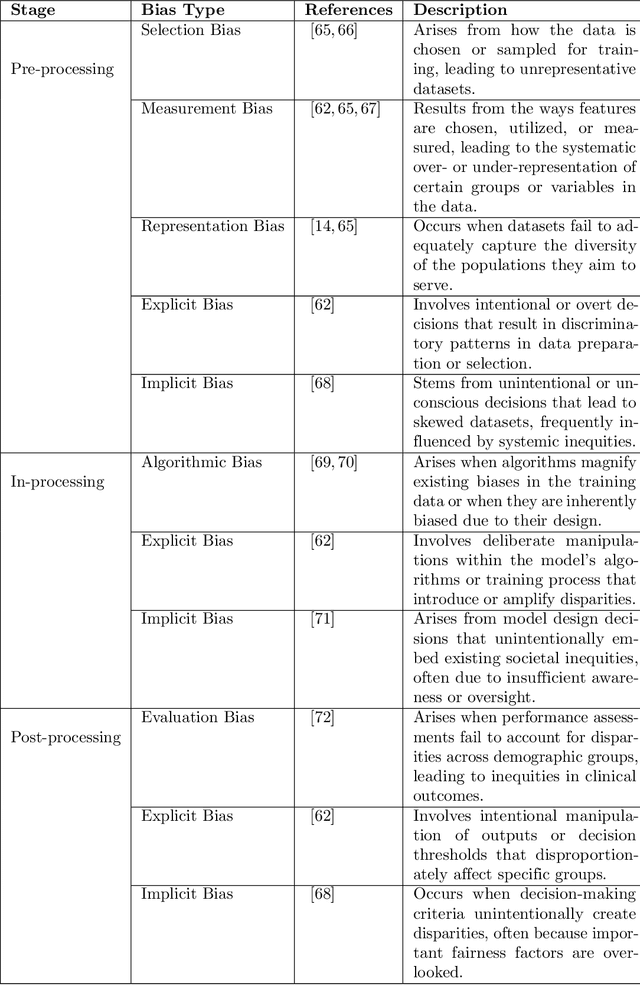Thang Doan Viet
Fairness in Large Language Models in Three Hour
Aug 05, 2024Abstract:Large Language Models (LLMs) have demonstrated remarkable success across various domains but often lack fairness considerations, potentially leading to discriminatory outcomes against marginalized populations. Unlike fairness in traditional machine learning, fairness in LLMs involves unique backgrounds, taxonomies, and fulfillment techniques. This tutorial provides a systematic overview of recent advances in the literature concerning fair LLMs, beginning with real-world case studies to introduce LLMs, followed by an analysis of bias causes therein. The concept of fairness in LLMs is then explored, summarizing the strategies for evaluating bias and the algorithms designed to promote fairness. Additionally, resources for assessing bias in LLMs, including toolkits and datasets, are compiled, and current research challenges and open questions in the field are discussed. The repository is available at \url{https://github.com/LavinWong/Fairness-in-Large-Language-Models}.
AI-Driven Healthcare: A Survey on Ensuring Fairness and Mitigating Bias
Jul 29, 2024

Abstract:Artificial intelligence (AI) is rapidly advancing in healthcare, enhancing the efficiency and effectiveness of services across various specialties, including cardiology, ophthalmology, dermatology, emergency medicine, etc. AI applications have significantly improved diagnostic accuracy, treatment personalization, and patient outcome predictions by leveraging technologies such as machine learning, neural networks, and natural language processing. However, these advancements also introduce substantial ethical and fairness challenges, particularly related to biases in data and algorithms. These biases can lead to disparities in healthcare delivery, affecting diagnostic accuracy and treatment outcomes across different demographic groups. This survey paper examines the integration of AI in healthcare, highlighting critical challenges related to bias and exploring strategies for mitigation. We emphasize the necessity of diverse datasets, fairness-aware algorithms, and regulatory frameworks to ensure equitable healthcare delivery. The paper concludes with recommendations for future research, advocating for interdisciplinary approaches, transparency in AI decision-making, and the development of innovative and inclusive AI applications.
 Add to Chrome
Add to Chrome Add to Firefox
Add to Firefox Add to Edge
Add to Edge